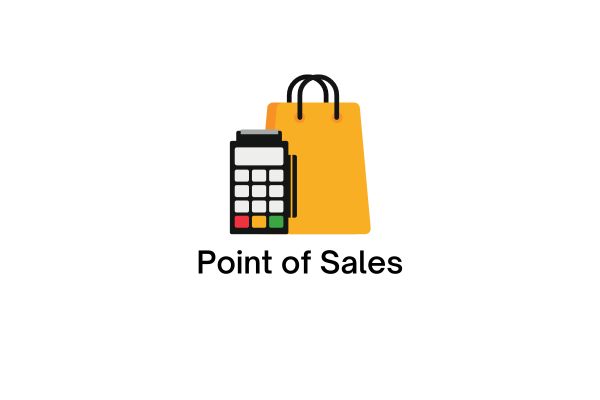When we make a purchase transaction in a restaurant or store we must have seen some type of checkout tool used to place an order where a store clerk or cashier records our order and then prints a receipt, this tool is called a point of sales
What is Point of Sales (POS)?
POS or Point of Sales is a system used for the needs of different types of retail outlets, designed to facilitate the process of buying and selling transactions quickly, safely, and systematically. POS is also a modern version of the traditional cash register, which is still widely used in some stores or companies.
Basically, the point of sales system is an all-in-one system for systematically tracking your business cash flow, designed to increase market interest and customer service.
Benefits of using Point of Sales (POS)
The detailed and complete transaction process
By using the POS system, you can conduct transactions in a more complete and detailed manner. This is because POS can add up the total transaction results at that time (real-time). So you can add up the transaction results periodically, be it daily, weekly, monthly or yearly as per your need.
1. Able to check inventory
You can calculate inventory and record all incoming and outgoing items through the POS system. This can also minimize staff negligence and human error in checking the number of items available. POS can also report more valid inventory data in real time, allowing you to monitor the movement of inventory in real-time.
2. Transaction reports are easily accessible
The POS system stores all sales and purchase transaction data that is made. In this way, you can call up daily transaction reports in full and in real-time at any time. You can even access this report online as this POS system is connected to the internet.
3. Product price changes can be made easily
Changes in a product’s selling price often experience increases or decrease along with market changes. But you don’t have to worry because, with a POS system, you can easily change the price of any product. You don’t need to change the product prices one by one as POS can also change the product sale prices to follow the evolution of the product sale prices automatically.
4. Safer and more convenient transaction activities
The POS system helps make the buying and selling process feel safer and more convenient. Because POS can process transactions faster and security is guaranteed because it is computerized with a sophisticated system.
Tips for choosing a point of sale (POS)
There are many cash registers or POS applications. However, you must consider the type of POS application that suits your business needs as not all POS applications are suitable for all businesses. If you do not pay attention to this, then the budget spent will be in vain and may lead to losses. So here are some tips for choosing a POS application.
1. Choose a POS application with all the features according to your needs
The important point in these tips is that you need to choose a full POS feature, but it needs to fit your business type. For example, if your business is in the culinary field, then the required functionality would include online ordering, order delivery, check splitting, product and commodity inventory management, and payment services.
2. POS applications should be easy to use
When using the POS application, you must first understand how it works. Therefore, it is better if you choose an application that is easy to set up and use. This too must be taken into account so that the training of the employees who will be using the POS can be carried out quickly due to the simpler way of working. Make sure the POS application has a simple and easy-to-learn user interface.
3. Consider the budget you have
The cost of buying a POS application isn’t all that high, but you’ll need to raise funds to buy other equipment, starting with supporting software, hardware, system integration, and support. For example, in terms of software, you must provide funds for one-time licenses, upgrades, monthly system subscriptions, and support.
Then for hardware, you need means for card readers, cash drawers, printers, barcode scanners, and others. If your business is still small, the cost may not be too high. However, if your budget is limited, you can also use a temporary rental system to still carry out transactions easily and quickly.
4. Choose a POS application that can generate different types of reports
When doing business, you need to know all the input and output data in order to make decisions in the future. Therefore, you must choose a POS system that can provide you with all types of reports that you need. The report must be available anywhere in real time and quickly. Required reports such as income, stock, profit, and loss, and the number of consumers.
5. Various payment methods are available to consumers
Not all consumers pay or use cash. Many consumers also desire cashless transactions, such as B. Using credit or debit cards. As an entrepreneur, you must provide these services via the cash register system. This also makes it easier for consumers to pay. However, the cash register system must be integrated with the respective bank.
